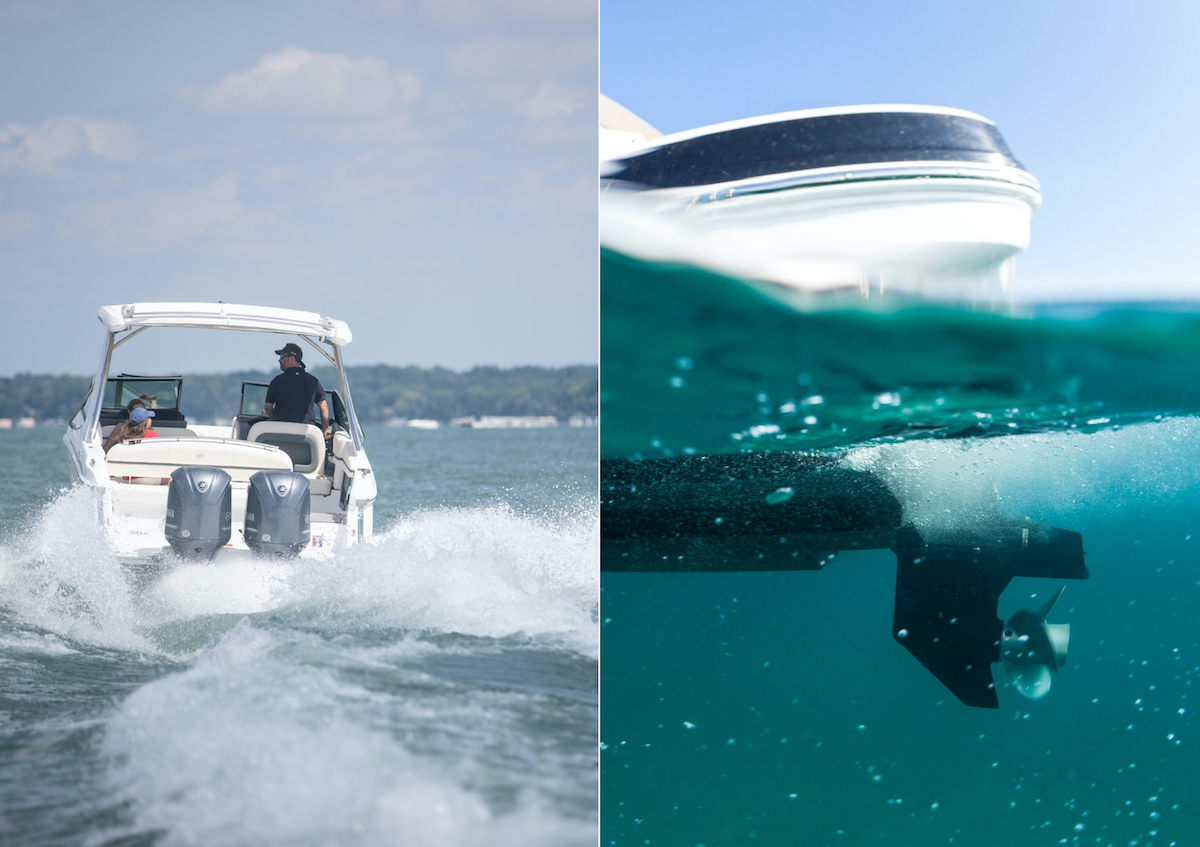Choosing the right motor for your boat is a decision that impacts performance, maintenance, and overall boating experience. If you’re stuck between an inboard and an outboard motor, you’re not alone. Both options have their unique benefits and drawbacks, and the right choice depends on how you plan to use your boat. Let’s break it down! Inboard vs. Outboard Motors: Pros and Cons
What Are Inboard and Outboard Motors?
Before diving into the pros and cons, it’s important to understand the basics:
- Inboard Motors: These are installed inside the hull of the boat and connected to a propeller via a shaft. They’re often found in larger vessels like cruisers, sailboats, and yachts.
- Outboard Motors: These are mounted externally on the transom and are more common in smaller boats like fishing boats, pontoons, and speedboats.
Pros and Cons of Inboard Motors
Pros
- Smoother Ride
- Inboard motors are mounted inside the boat, which lowers the center of gravity and improves stability, especially in rough waters.
- This makes them ideal for larger boats and offshore cruising.
- Quiet Operation
- With the engine housed within the hull, inboard motors are quieter, enhancing the onboard experience.
- Durability
- Built for longevity, inboard motors are often designed to handle heavy use, making them a great choice for commercial or long-distance applications.
- Better for Towing
- Their placement and design make inboards perfect for towing water skiers or wakeboarders, as they create a cleaner wake.
Cons
- Complex Maintenance
- Maintenance can be more complicated and expensive due to their fixed location within the hull.
- Repairs often require professional assistance.
- Limited Maneuverability
- Inboard motors typically lack the agility of outboards, making them harder to handle in tight spaces like marinas.
- Higher Initial Cost
- Inboard systems tend to be pricier upfront, which might not suit all budgets.
Pros and Cons of Outboard Motors
Pros
- Ease of Maintenance
- Outboard motors are mounted externally, making them easier to access for maintenance and repairs.
- Many DIY boaters appreciate the simplicity of outboard motor upkeep.
- Compact and Lightweight
- Outboards are generally lighter than inboards, which can improve fuel efficiency and boat speed.
- Their compact design also frees up space inside the boat for storage or seating.
- Agility and Maneuverability
- Outboards offer excellent control and are highly responsive, making them ideal for fishing boats or activities in shallow waters.
- Cost-Effective
- Outboards are typically more affordable upfront and offer a better value for smaller boats or casual use.
Cons
- Exposure to Elements
- Since outboards are mounted externally, they are more exposed to water, salt, and weather, which can increase wear and tear.
- Noise Levels
- Outboards are generally louder than inboards, which may be a drawback for those seeking a quieter ride.
- Limited Power for Larger Boats
- While modern outboards are powerful, they might not be the best choice for very large boats or heavy-duty use.
H2: Key Factors to Consider When Choosing
1. Boat Size and Purpose
- Inboard Motors: Best for larger boats, offshore cruising, and towing.
- Outboard Motors: Perfect for smaller boats, fishing, and recreational activities.
2. Budget
- If you’re looking for a cost-effective solution, an outboard motor may be the way to go.
- For long-term durability and performance, consider investing in an inboard motor.
3. Maintenance Preferences
- Outboards are easier to maintain for DIYers.
- Inboards may require professional upkeep, which can increase costs over time.
4. Performance Needs
- Inboards excel in stability and power for heavy-duty tasks.
- Outboards are agile, responsive, and great for shallow waters.
H2: Final Thoughts
The choice between an inboard and outboard motor ultimately depends on your boating needs, preferences, and budget.
- Choose an inboard motor if you prioritize durability, quiet operation, and stability for larger vessels or towing.
- Opt for an outboard motor if you want ease of maintenance, agility, and affordability for smaller, versatile boats.
Still undecided? Contact us for expert advice or explore our selection of inboard and outboard motors to find the perfect fit for your boat!

